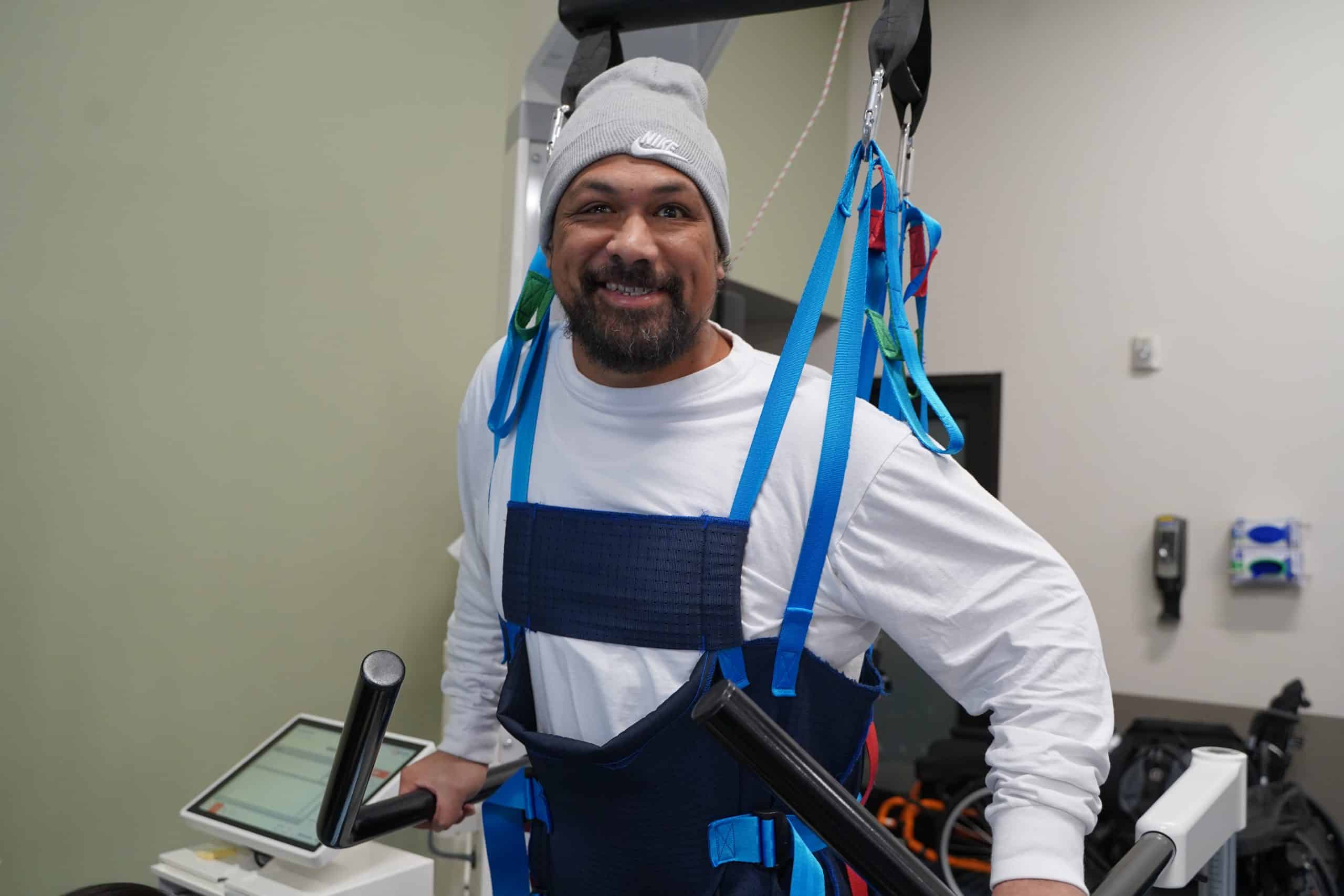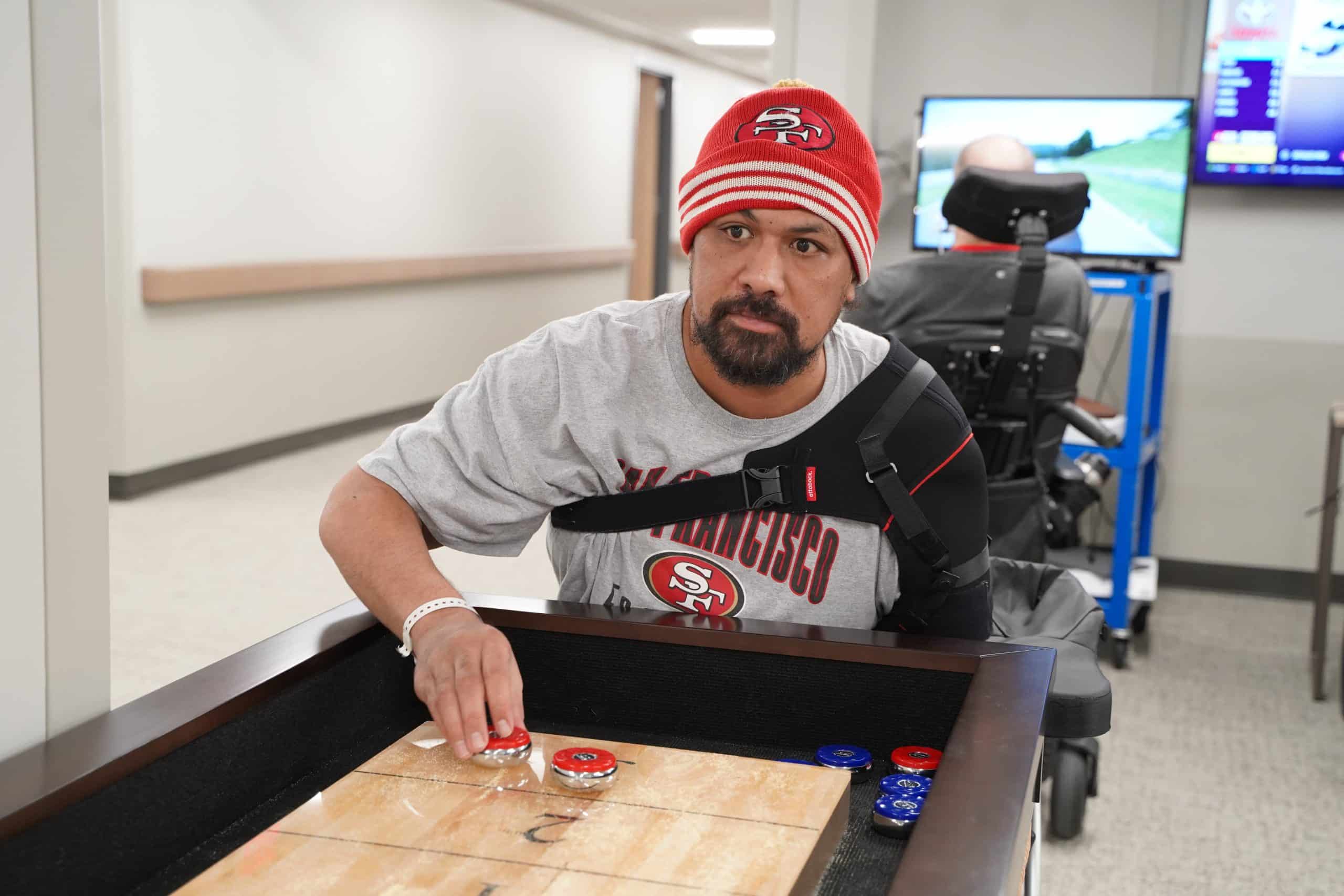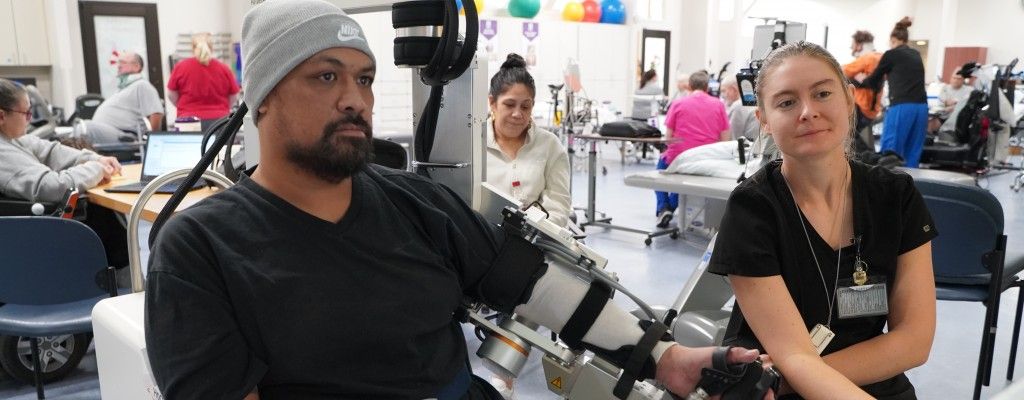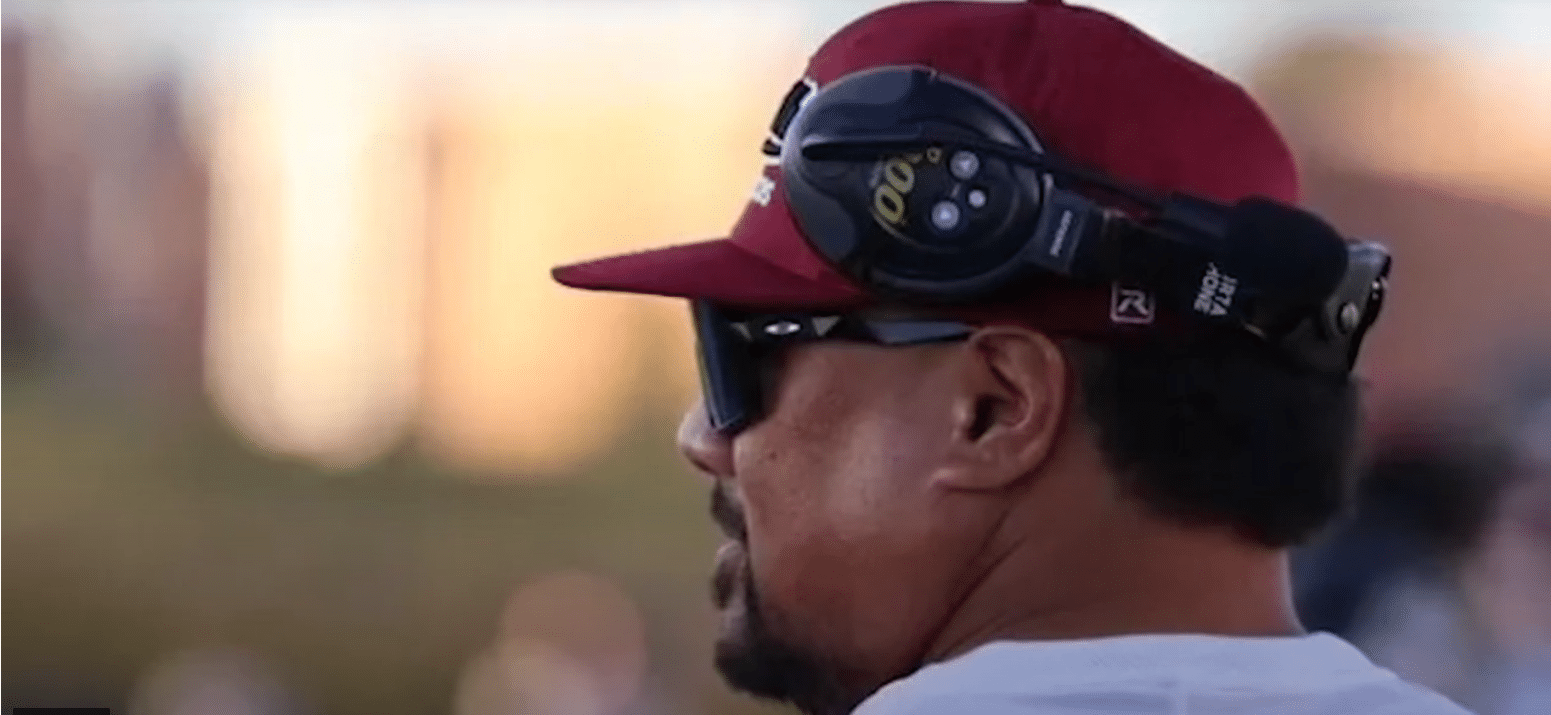On what turned out to be a not-so-typical Friday night, Aaron Vaeao did what he normally does. Stand on the sideline for Lee’s Summit North High School and coach his defensive linemen.
Aaron, a former collegiate football player for Northern Arizona University, strives to influence the love of the game in his players, like he had done for him.
“I grew up watching my older brothers play football, and it made me want to play,” Aaron said. “I get so much joy from watching kids’ growth from when they first start with me until they leave.”
On October 13th, 2023, the Broncos beat Lee’s Summit West, 28-21, and improved to 8-0. On the drive home, Aaron started exhibiting stroke-like symptoms. Fortunately, for his family, his son was quick on his feet.
“I was swerving a bit,” Aaron said. “My son kept jumping out from the back seat, pulling the wheel, and kept asking me, ‘Dad, are you ok?’ But he basically saved our lives.”
Aaron and his son made it home and his wife called an ambulance. Emergency medical technicians realized Aaron was having a stroke and took him to Research Medical Center in Kansas City. The 41-year-old was hypertensive upon admittance, which doctors believed contributed to his stroke. Aaron admitted that he had not been taking his medication to manage his high blood pressure.
GAME-MANAGEMENT OF MEDICAL NEEDS
Aaron arrived at Madonna Rehabilitation Hospitals’ specialized stroke program on November 9th and his care team immediately started monitoring his blood pressure and created a plan to rebuild his independence.
“High blood pressure puts pressure on vessels and makes them more susceptible to a stroke,” Carol Olson, PT, NCS, a Madonna physical therapist, said. “We have to just kind of start at the beginning and retrain the body to get used to sitting up and then progressively challenging more and more. We monitored his vital signs and we found things that he could do even when his blood pressure was maybe not that great.”
Through daily physician visits, coupled with intense physical and occupational therapies, Aaron’s care team focused monitored his medical stability while focusing on re-gaining function on his left side, which was primarily impacted by the stroke. He dealt with joint pain and weakness, making sitting on the edge of a bed or a therapy mat difficult or even intolerable.

PHYSICAL REHABILITATION LIFTS RECOVERY
Aaron’s occupational therapist did notice something different with his hands and arms, however.
“Aaron was very unique in that he actually had a little bit of grasp function, grasp and release in his left hand,” Sarah Synek, OTD, OTR/L said. “But his elbow and shoulder really just had some trace movement of those muscles and so he wasn’t able to really lift his shoulder, bend his elbow, straighten his elbow, any of those things that you kind of start to see from initially after a stroke.”
Utilizing various Madonna specialized technology, his care team focused on stimulating targeted muscle groups to strengthen them and improve his mobility and functionality.
Aaron used the Lokomat, a body-weight supported treadmill, to allow his legs to move and retrain his muscles to walk. He then transitioned from the treadmill to walking with a walker. For occupational therapy, Aaron benefited from the functional electrical stimulation bike, especially in his left arm. Then he transitioned to the Armeo®Power, for robotic-supported targeted movement.
“We were able to take away gravity to really help increase [the] movement of the arm,” Synek said. “We really work in the shoulder, the elbow, the wrist, the hand, and kind of incorporate all those different movements into Aaron’s function and recovery.”


HEALING MENTALLY AND EMOTIONALLY
The care team also matched Aaron’s relentless spirit.
“Aaron was very motivated,” Synek said. “You know, from day one, I think he knew that he could gain a lot back and he would say ‘I know I can do this. I know I can do this.’ Once that pain started to be under control, you could just see him take off. He wanted to go. He worked hard on the field. He worked hard at his job. That motivation really sunk in.”
While his care team recognized that self-motivating trait in Aaron, he credits his care team for enhancing his confidence and preparing him for everyday life.
“I’ve gained a lot of confidence because they were able to kind of walk me through the steps of being able to do the things I needed to do on an everyday basis,” Aaron said. “Getting through this, it wasn’t easy. I mean, mentally and physically, it wasn’t easy. But there’s always a bigger picture.”
The bigger picture for Aaron is the family waiting for him back in Lee’s Summit, Missouri, both at home and on the football field.
And now he’s got a whole new perspective that he can instill in those he impacts.
“You can’t take things for granted,” Aaron said. “This changed me to help me realize that I’m not bigger than life. Things happen, and I need to take my medicine or else I wouldn’t be in this situation.”






